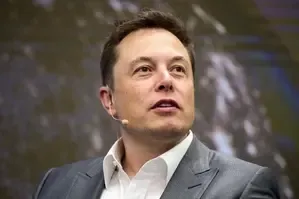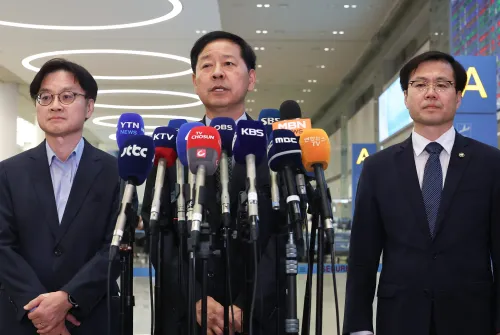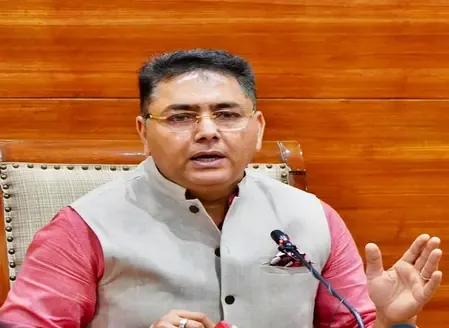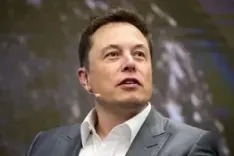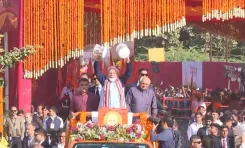Does the India-UK FTA Mark a New Trade Era?
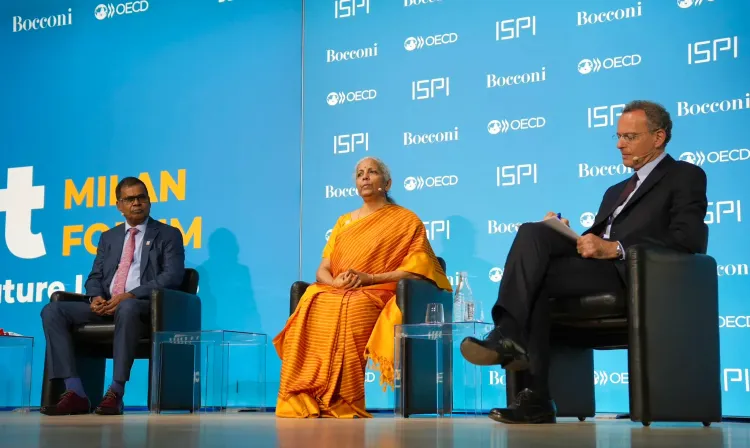
Synopsis
Key Takeaways
- 99% of Indian exports will benefit from zero duty.
- Enhanced market access for Indian exporters.
- Focus on sustainable and inclusive economic growth.
- New job opportunities in various sectors.
- Significant financial advantages for Indian service providers.
New Delhi, May 7 (NationPress) The India-UK free trade agreement (FTA) marks a transformative milestone in trade relations between the two nations, as stated by Finance Minister Nirmala Sitharaman.
On Tuesday, Prime Minister Narendra Modi and UK Prime Minister Sir Keir Starmer unveiled the successful completion of this mutually advantageous India-UK FTA, which is expected to benefit 99 percent of Indian exports through zero tariffs.
In a post on the X social media platform, FM Sitharaman emphasized that under the guidance of PM Modi, India is poised to become a key driver of economic growth.
“This agreement will facilitate enhanced market access for Indian exporters. This will allow industries and innovation to thrive,” the Finance Minister elaborated.
She noted, “Establishing bilateral agreements is becoming increasingly vital. While multilateral deals have had their time, the current landscape favors nations crafting their own bilateral frameworks,” during a plenary session at the 'NEXT Milan Forum' held at Bocconi University in Milan, Italy.
The FTA is set against the backdrop of strengthening economic ties between India and the UK, highlighted by their bilateral trade, which currently stands at approximately $60 billion and is expected to double by 2030.
This all-encompassing and forward-thinking agreement is the result of extensive negotiations aimed at enhancing trade and investment connections across diverse sectors, including goods, services, and technology.
It aims to promote sustainable and inclusive economic growth, bolster resilient supply chains, and create high-quality job opportunities in India, as per government sources.
The FTA guarantees extensive market access for goods across all sectors, addressing India's export interests comprehensively. India will benefit from tariff reductions on approximately 99 percent of tariff lines, encompassing nearly 100 percent of trade value, creating substantial opportunities for increased bilateral trade between India and the UK.
Moreover, India will enjoy one of the most ambitious FTA commitments from the UK in services such as IT/ITeS, financial services, professional services, and educational services, paving the way for new job opportunities.
The exemption for Indian workers temporarily residing in the UK, along with their employers, from paying social security contributions for three years under the Double Contribution Convention, will lead to significant financial advantages for Indian service providers and enhance their competitiveness in the UK market. This will result in new job opportunities and benefit many Indians working in the UK.
India has also ensured that non-tariff barriers are adequately addressed to facilitate the smooth flow of goods and services, preventing any unjustified restrictions on India's exports.



